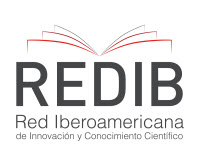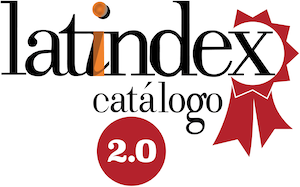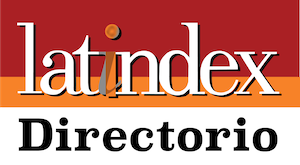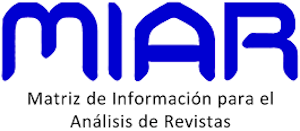Code of Ethics
The Universidad Politécnica Estatal del Carchi is committed to promoting ethical conduct in the publication of its scientific journals.
Those responsible for the edition and publication of the journal Sathiri: Sembrador have the responsibility of verifying the highest quality of the articles that are published, according to the process of transformation of the academic, professional and human modes of action of the authors who wish to publish in it, in coherence with the system of ethical values that the university institution activates. This responsibility entails observing and complying with the following editorial policies:
1. Reception and Impartiality
The Sathiri: Sembrador journal receives articles of an internal and external nature without any discrimination and under basic admission procedures in which the authors declare that the article presented is original and unpublished. In this way, the Editorial Committee and Council will make a decision to approve or disapprove the article in this first phase and according to the corresponding call. The position presented by the author will be respected at all times and if an article is not admitted, the author will receive the corresponding feedback, proceeding to the full return of the document sent.
2. Confidentiality
All members of the Editorial Board and Committee must keep confidentiality about the articles received, about the editing process and the internal decisions that are taken, in addition they are prevented from using the information and arguments of the articles in their own works.
Authors who intend to publish in Sathiri: Sembrador journal are subject to the privacy statement maintained by it.
3. Objectivity
The evaluation of the articles will be carried out objectively regardless of the authors' own way of thinking or feeling; for which we will proceed to make informed comments about the form and substance of the article. The autonomy of the author and his moral and intellectual criteria will be respected throughout the evaluation process.
4. Prompt response
Once the columnist submits his work to the Sathiri: Sembrador journal undertakes to make the proposed and substantiated changes coming from the planned evaluation phases before its final edition. The edition, publication and dissemination of the approved articles will be carried out according to the schedule established by those responsible for the journal, thus ensuring the speed and efficiency of the evaluation process.
5. Conflict of interests
In order to verify the validity of the evaluation process of the articles and certification of the origin, authenticity and affiliation of the authors, once the article has passed the corresponding phases, a letter of authorization for publication and the corresponding delivery of the documentation requested by the journal.
In the event that any article is authored by a person related to a member of the Editorial Board and Committee, the latter must refrain from intervening in the editing process of the article in question.
6. Originality and Plagiarism
The originality of the article presented will be manifested in the official letter addressed to the UPEC Academic and Scientific Production and Dissemination Unit in which it expresses its own will to carry out its revision and validation, starting in the document the following text: “This work is unpublished and original, it has not been published in any other written or electronic medium. In addition, before knowing the decision of the journal, it will not be presented to another medium”. The document will be valid with the signature of responsibility of the author or authors.
Those responsible for the Sathiri: Sembrador magazine will upload the digital document (article) to the Turnitin® Plagiarism Checker anti-plagiarism system, contracted by the university and its approval will depend on the percentage determined by the Magazine, in accordance with the review of the reports delivered by the system and the discharge made by the writer.
7. Contribution to the editorial decision
Peer review is a procedure that helps editors make decisions about proposed articles and also allows the author to improve the contribution sent for publication. Reviewers commit to a critical, honest, constructive and impartial review of the scientific and literary quality of the written work, that is, based on their individual skills and knowledge.
8. Anonymity
To ensure that the review process is as objective, impartial and transparent as possible, the identity of the authors is removed before submitting the articles for peer review. If the identity of the authors, their institutional affiliations or any other information compromises the anonymity of the document, the reviewer must notify the editors immediately.
9. Multiple and/or repetitive publications
The author should not publish articles that repeat the same search results in more than one scientific journal. The simultaneous proposal of the same contribution to multiple scientific journals should be considered ethically improper and reprehensible.
10. List of sources
The author must always provide the correct indication of the sources and contributions mentioned in the article.
11. Authorship of literature
As for the authorship of the work, the authors guarantee that it includes those people who have made an intellectual and scientifically significant contribution in the conceptualization and experimental design of the work, as well as in the interpretation of it. the results and actual wording of the article. In turn, the authors have been organized hierarchically according to their level of responsibility and their respective roles.
As a journal policy, it is not possible to repeat a publication by the same author in the next number, despite having overcome the corresponding filters.
In all matters not regulated by this CODE OF ETHICS, the principles published by the CODE OF ETHICS of the Universidad Politécnica Estatal del Carchi will be taken as a reference in the pertinent aspects of academic ethics.




















